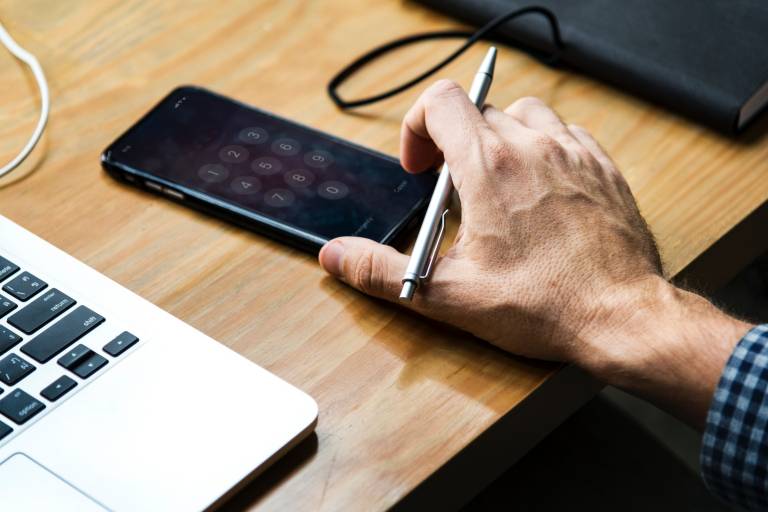How to stay safe when networking online
4 December 2020
We all use platforms like Facebook, Twitter, Instagram and WhatsApp. But are we all aware of how to stay safe on these online spaces and what to do in the event where we feel harassed?

These days, nearly all of us engage with one of the many social media platforms and messenger apps out there. Although different apps offer users varying ways of communicating, they essentially help us to stay in contact with friends near and far, connect with new individuals, and in some cases, network with large groups of people.
If you're a new UCL student, these platforms are a great way to start getting to know others before you arrive and making friends - if you're an international student flying into London, you might even be able to find some travel buddies!
Although they are a great way of making and keeping connections, it’s always good to know how best to stay safe and what steps to take in the unlikely event of experiencing any harassment.
Here's what you can do if you experience any harassment online:
1. Talk about it
If you are being bullied on social media, you should tell someone about it. As well as friends and family, UCL Student Support and Wellbeing and the Students' Union UCL Advice Service are here to help and support you.
Student Support and Wellbeing run daily drop-in sessions, so you can speak to an adviser quickly for guidance. You can speak to Crime Prevention and Personal Safety Advisor, Darren Watts, if you need any advice about staying safe online.
2. Block the perpetrator
If you can, take a screenshot of any evidence of the harassment and then block the individual who is harassing you in the first instance. Review your privacy settings to restrict who has access to your account.
3. Report it
If you feel that you're being discriminated against due to a disability, your race, religion, gender identity or sexual orientation, this can be reported to the police as a hate crime. If you feel unsafe or threatened in any way, then you should also report this to the police. There are several ways you can do this, as explained in this page from the Met Police. You can also report confidentially at UCL using Report+Support.
3. Contact the social media site
Contact the social media site that you've been harassed on using their safety section and they can take action, which might include removing posts, shutting down profiles or more. Even if they can't do much in response at first, all reports of harassment, abuse or bullying will help them identify offenders.
Visit these sites for more safety and privacy information about some of the main platforms:
This guide includes safety tips and useful links to even more social media channels.
Here are a few things you can do to stay safe online:
1. Be careful what you share online
- Ensure your privacy settings are set to a level of security that you feel comfortable with
- Check your location settings, as some apps like Snapchat let you share your location with other users
- Ensure your profile picture on your social media accounts doesn’t give any clues as to where you live
2. Never reveal your passwords
- This is common sense, but remember to never give out your password to anyone - once it’s out there, you don't know whose hands it could end up in!
- Using strong passwords that others won’t guess with a combination of letters, numbers and symbols will help to stop people getting into your account
3. Think before you post/share
- Before you post anything, just think whether you’d want your parents, teachers, or members of your peer group seeing it
- Once you’ve pressed send, it’s no longer private and you won’t have control over it once it’s out there in the public domain
- Please be careful about getting intimate on social networking channels such as zoom and houseparty – these are not the most secure methods of communication. These applications have been hacked in the past for personal details or images that can be used to blackmail the person on the call. Be aware that the person you are on a call with may be able to take photos of your call without your knowledge.
4. Be careful who you chat to
- If someone adds you who you’ve not met before and don’t know, it’s probably best to ignore their request
- Don’t share personal information like your address or phone number with somebody you don’t know
- To read further advice on how to stay safe when online, visit the Get Safe Online guide which has a wealth of helpful tips
Student Support and Wellbeing
 Close
Close

